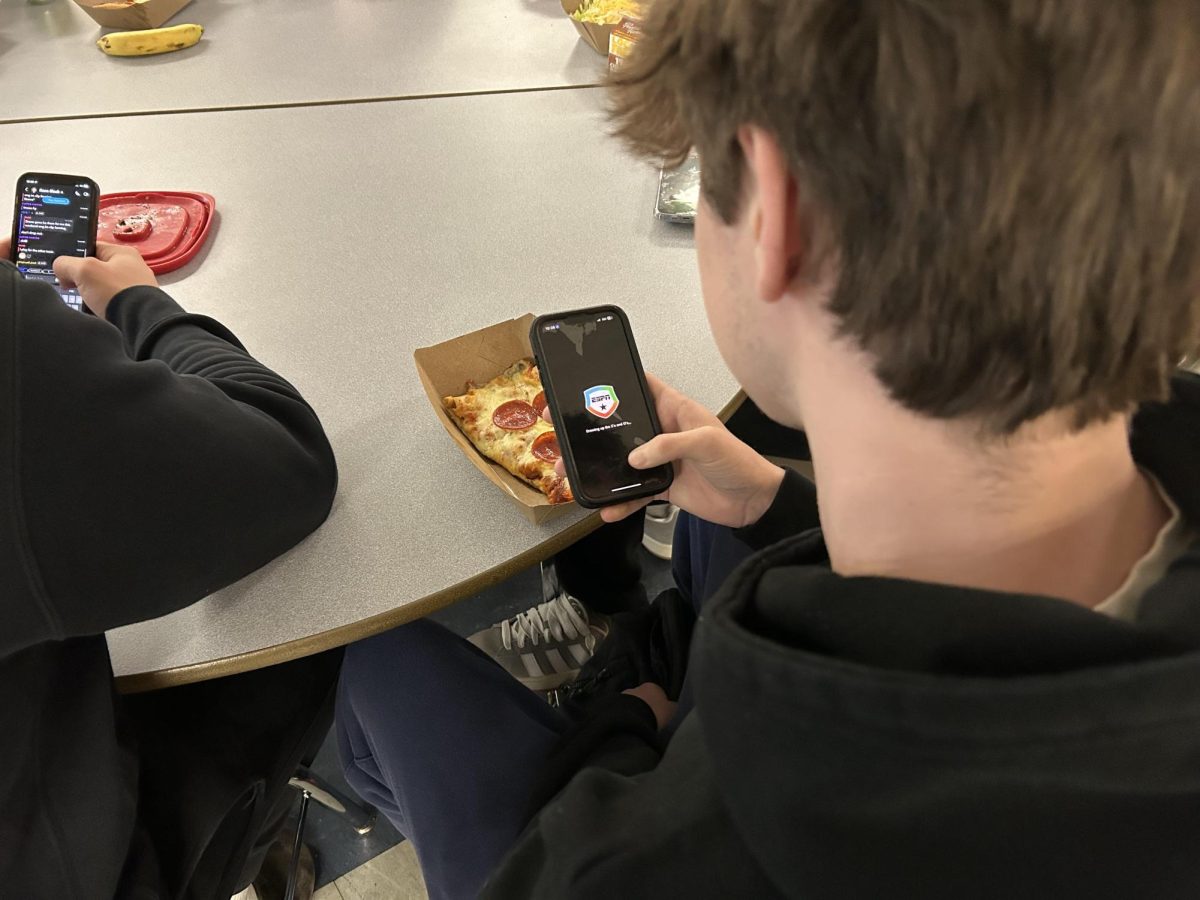 You find yourself awoke at 1 a.m. on a Thursday, in a cold sweat, frantically searching around your damp bed for your phone. You know you must check fantasy football. Your eyes dart around your screen, your fingers swiftly swipe, all to make the best possible decisions in the app to gain the most virtual points possible. Meanwhile, the thought of your increasingly tall pile of missing homework never graces your fantasy-fueled brain.
You find yourself awoke at 1 a.m. on a Thursday, in a cold sweat, frantically searching around your damp bed for your phone. You know you must check fantasy football. Your eyes dart around your screen, your fingers swiftly swipe, all to make the best possible decisions in the app to gain the most virtual points possible. Meanwhile, the thought of your increasingly tall pile of missing homework never graces your fantasy-fueled brain.
Loy Norrix students are battling for the first place prize and the glorified title of “Fantasy Champion,” while avoiding the menacing and embarrassing punishment that is dished out to most leagues’ biggest losers. Sleeper shows that punishments could vary from texting your crush to posting embarrassing videos of yourself across social media. Whatever the punishment may be, it’s that time of year when participants will find out what fantasy football’s worst players will be up to in the upcoming weeks.
Fantasy football is an online fictional team based on real-life players. Fantasy managers will do a virtual draft of their team and receive wins and losses week by week based on the performances of the players they have drafted. At the end of the season, first place usually wins a prize, as most leagues require a buy-in with the winner receiving the pool of cash. The Campanile says many leagues also require a punishment for the loser, usually decided by the winner(s). With punishments usually being very embarrassing, the whole league must be present for the punishment, just for entertainment and to make sure everything runs smoothly.
Junior Max Polderman has been watching football and playing fantasy for years, and usually finds success; although, this year’s results were a little different.
“I sort of quit mid-way through the season because my team was so bad,” Polderman said. “I think the punishment will be the ‘Milk Mile,’ so I’d have to run a mile and drink a quarter of the gallon each lap. I’m not looking forward to it.”
With such extreme punishments, the players often let fantasy football consume their lives, leading to less effort in other aspects of life. Some students admit that the time they usually spend on homework goes into fantasy football.
Senior Terrell McClinton admits that sometimes he’s playing fantasy football instead of studying for his tests.
“It was a rough season for me, meaning I had to try and make a comeback,” McClinton said. “I spent a lot of time submitting waiver wires, researching ESPN, and overall just watching games, which consumed a lot of my life.”
Waiver wires are an essential part of building a good fantasy team. Just like in the real NFL, participants can put in requests to pick up players that aren’t already on a team through the waiver wires. Fantasy Football 101 adds that the requests get processed and accepted based on the participants record (W-D-L), and the worse their record is, the more likely their requests will be accepted.
McClinton added that he does a lot of research on ESPN, which gives him a huge advantage. ESPN gives their readers the most up-to-date information on all of the players in the league, how they are performing, if they are healthy or not and sometimes even how their mood is in the locker room. However, while doing all of these things can be productive for your team, they aren’t so productive in real life. These little sacrifices end up creating a landslide effect in some cases, leading to more and more commitment to the fantasy world.
However, it doesn’t end at fantasy football. It can lead into a world of sports gambling at an early age. Kirton McConkie says that the problem with fantasy football and sports gambling is the fact that many are overconfident in their ability to win big. This is why someone can go to the casino and drop $1,000 on blackjack at 18 years old but has to wait until turning 21 to bet $5 on a sports game online.
Many young people don’t see the issues with this and only see a quick fix, which creates financial problems down the road. Norrix graduate and Adrian College freshman Valentin Hernandez is a victim of the gambling ladder and has admitted to putting too much time and money into this industry.
“I started playing fantasy football and winning, so it gave me the confidence to put some real money into the app, which led to sports gambling,” Hernandez said. “I’m quitting now, though, because I felt I was sacrificing more than I was gaining, and I felt it becoming an addiction.”
It’s a slippery slope of gambling and is something that should be taken seriously. From ABC News, “Between 60-80% of high schoolers say they have gambled for money in the past year, and up to 6% are addicted to gambling.”
The moral of the story is that in life, if something feels too good to be true, it probably is. Gambling is a serious problem that has not been taken as seriously as it should be due to its popularity across social media and with younger generations.
If you or a person you know is struggling with gambling, call the gambling hotline: 1-800-GAMBLER.
“Just remember to not be embarrassed to ask for help,” said Hernandez. “It will be increasingly more embarrassing the longer you wait.”
Categories:
Involvement in fantasy football at a young age can become a real-life problem
Cavan Helms, Broadcast Editor
February 19, 2025
Credit: Cavan Helms
Junior Max Polderman in B lunch opens up his fantasy app before even indulging in the food in front of him.
1
4
More to Discover
About the Contributor

Cavan Helms, Broadcast Editor
Hey, I’m Cavan Helms, I’m a senior and this is my fourth year working on Knight Life. I joined the newspaper because I enjoy writing about topics I am passionate about and need more recognition. In my free time, I enjoy playing sports, working out and hanging out with friends.
Pronouns: he/him









Young Impressionable Mind • Feb 27, 2025 at 11:58 am
Wow this story has convinced me not to use fantasy football.